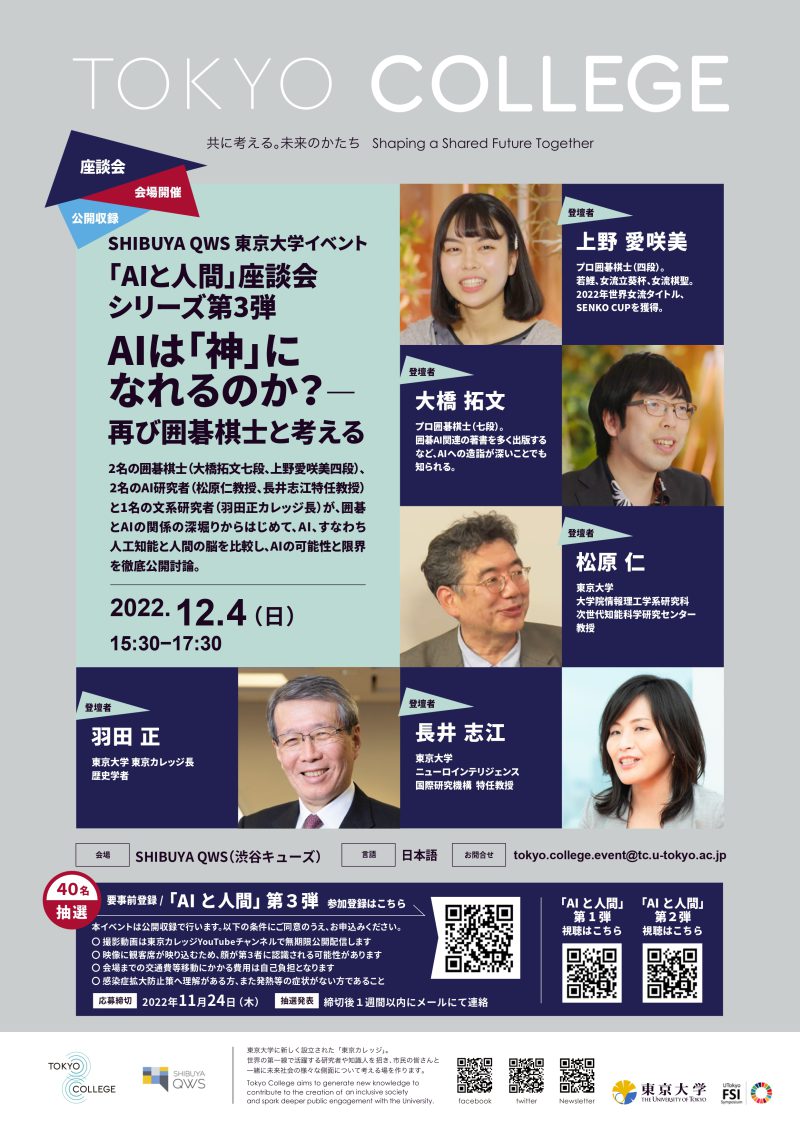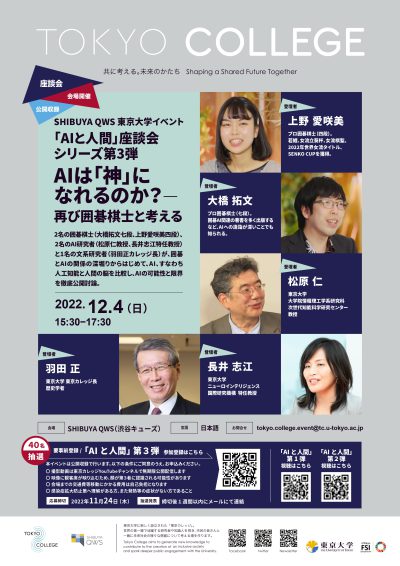“AI and Humans” Roundtable Series, Part 3: Can AI Become Gods?: A Follow-Up Discussion with Professional Go Players

| Date(s) | Sunday, 4 December 2022, 3:30 - 5:30 pm |
|---|---|
| Venue |
Attendees will be chosen by lottery. Deadline: 24 November, 2022 Results of the lottery will be announced by email within one week following the deadline. |
| Registration | Pre-registration required (40 seats; lottery) |
| Language | Japanese |
| Abstract |
Two professional Go players (ŌHASHI Hirofumi 7-dan, UENO Asami 4-dan), two AI researchers (Professor MATSUBARA Hitoshi, Project Professor NAGAI Yukie), and one humanities researcher (Tokyo College Director HANEDA Masashi) take a deep dive into the relationship between Go and AI, compare AI (i.e., artificial intelligence) and the human brain, and engage in a thorough public discussion on the potentials and limitations of AI.
Part 1 of the “AI and Humans” Roundtable Series is available here. Part 2 of the “AI and Humans” Roundtable Series is available here. |
| Program |
This event will be recorded and made available to the public. If you wish to attend, we ask that you first agree to the following conditions:
|
| Speaker Profile |
UENO Asami Professional Go Player (4-dan). Winner of Wakagoi Cup, Hollyhock Cup, and Women’s Kisei. In 2022, won the Women’s World Title and SENKO CUP.
ŌHASHI Hirofumi Professional Go Player (7-dan). Has published numerous volumes on Go AI. Well-known for deep knowledge of AI.
MATSUBARA Hitoshi Professor, Next Generation Artificial Intelligence Research Center, Graduate School of Information Science and Technology, the University of Tokyo
NAGAI Yukie Project Professor, International Research Center for Neurointelligence, the University of Tokyo
HANEDA Masashi Historian; Director, Tokyo College, the University of Tokyo
|
| Organized by | Tokyo College, The University of Tokyo |
| Contact | tokyo.college.event@tc.u-tokyo.ac.jp |















